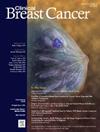Climate Therapy: Sustainability Solutions for Breast Cancer Care in the Anthropocene Era
IF 2.9
3区 医学
Q2 ONCOLOGY
引用次数: 0
Abstract
Climate change is the greatest threat to human existence. Currently it impacts breast cancer care by disrupting treatment, by food poverty and economic hardship and through fossil fuel pollution which increases breast cancer incidence. These impacts are greatest in those already experiencing deprivation. However, healthcare (including breast cancer care) is not an innocent bystander in climate change. The carbon emissions of healthcare are equivalent to the continent of Africa with 1.5 billion people. Like all other enterprises healthcare has an obligation to move to net zero carbon emissions. Previously conducted studies of healthcare professionals have highlighted the role of guidance documents to facilitate climate engagement by them. This prompted the formation of an interdisciplinary group to review the intersection points between breast cancer care and planetary health. A solution tree of sustainable solutions for practicing clinicians is proposed which can be integrated into daily clinical practice and into their personal lives.
气候疗法:人类世时代乳腺癌护理的可持续性解决方案。
气候变化是对人类生存的最大威胁。目前,它通过扰乱治疗、粮食贫困和经济困难以及增加乳腺癌发病率的化石燃料污染来影响乳腺癌护理。这些影响对那些已经处于贫困中的人来说是最大的。然而,医疗保健(包括乳腺癌护理)并不是气候变化的无辜旁观者。医疗保健的碳排放量相当于拥有15亿人口的非洲大陆的碳排放量。像所有其他企业一样,医疗保健有义务实现净零碳排放。以前对卫生保健专业人员进行的研究强调了指导文件在促进他们参与气候变化方面的作用。这促使成立了一个跨学科小组,以审查乳腺癌护理与地球健康之间的交叉点。为临床医生实践可持续的解决方案树提出,可以整合到日常临床实践和他们的个人生活。
本文章由计算机程序翻译,如有差异,请以英文原文为准。
求助全文
约1分钟内获得全文
求助全文
来源期刊

Clinical breast cancer
医学-肿瘤学
CiteScore
5.40
自引率
3.20%
发文量
174
审稿时长
48 days
期刊介绍:
Clinical Breast Cancer is a peer-reviewed bimonthly journal that publishes original articles describing various aspects of clinical and translational research of breast cancer. Clinical Breast Cancer is devoted to articles on detection, diagnosis, prevention, and treatment of breast cancer. The main emphasis is on recent scientific developments in all areas related to breast cancer. Specific areas of interest include clinical research reports from various therapeutic modalities, cancer genetics, drug sensitivity and resistance, novel imaging, tumor genomics, biomarkers, and chemoprevention strategies.
 求助内容:
求助内容: 应助结果提醒方式:
应助结果提醒方式:


